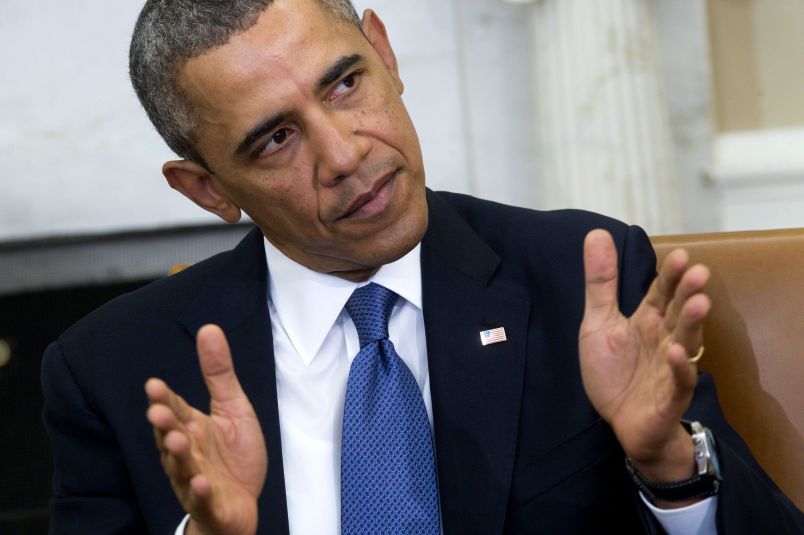For a supposed government takeover of health care, there is some serious evidence that Obamacare is actually making the individual health insurance market even more competitive than it was before the law.
The empirical results are mixed thus far, according to a new study from the Kaiser Family Foundation, but one of the authors told TPM on Monday that his takeaway from the law’s opening act is that it’s been a net positive on price competition.
“The bottom line in my view is that this is now a much more price competitive market,” Larry Levitt, vice president at the non-profit, non-partisan foundation, said via email. “It will be hard for insurers to be much more expensive than their competitors and maintain market share.”
Kaiser’s research measured the competitiveness of seven state-run exchanges, the only ones to release plan-by-plan data so far, by three metrics: Number of insurers with at least a 5 percent market share, the market share of the largest insurer and a complex formula known as the Herfindahl-Hirschman Index. The last translates a market’s competitiveness into a 1 to 10,000 rating — the lower the figure, the more competitive it is.
The information is incomplete: It is limited to the exchange marketplace and doesn’t include any data from the 36 states utilizing HealthCare.gov. But it’s an initial look at how Obamacare is affecting the market it sought to reform.
The two biggest marketplaces in the country, California and New York, have experienced a notable increase in competition.
The market share of California’s largest company, Wellpoint, dropped from 47 percent to 30 percent. The state added one insurer with a 5 percent market share. It also dropped from a “highly concentrated” market to a “moderately concentrated” market by the HHI’s measurement.

Likewise in New York, the market share of the largest insurer dropped from 28 percent to 18 percent. Two more insurers gained a 5 percent market share in the state, and the HHI determined the state moved from a “moderately concentrated” market to an “unconcentrated” market.
Three of the states — Minnesota, Nevada and Rhode Island — appear to have relatively stable markets, but there are two counterpoints to the experiences of California and New York: Connecticut and Washington.
In Washington, the market share of the largest insurer spiked from 2012: 40 percent to 62 percent in 2014. It also leapt by more than 1,000 points by HHI’s standards.

Connecticut had a similar experience, but its findings are instructive for another reason: Two major insurers didn’t sell plans on the exchange.
Aetna and UnitedHealth pulled out of the exchange before it went live. As a result, the share of the largest insurer, Wellpoint, increased from 45 percent to 60 percent. The number of insurers with at least 5 percent of the market dropped from four to two, and the HHI measurement was also unkind to Connecticut’s market.
Now, it could be a strike against the law simply because several major companies opted not to participate in the state’s exchange — and if they stay out, that will likely continue to have a detrimental effect on its competitiveness. But the companies that sat out 2014 will have an opportunity to come into the market in 2015.
That’s why it could take several years for Obamacare’s ultimate effect on the insurance market to be knowable.
“I imagine it will take at least three years for things to really shake out in this market. Enrollment should grow significantly over the next couple of years, at least if the Congressional Budget Office is right,” Levitt said. “And by then, the big insurers that are now sitting on the sidelines will decide whether they want to play.”
“We may see some big relative price changes over the next couple of years as insurer try to grab market share or find that they set their premiums too high or too low in the first year.”









